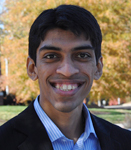 Can we condition health workers to believe that they should work in underserved areas? Among the nonmonetary incentives used for retaining workers in rural areas, intrinsic motivation—or inherent willingness—can be a significant influence. The problem with intrinsic motivation is that by definition, it’s intrinsic, and cannot be cultivated or systematically introduced into a cohort of health workers. Or can it?
Can we condition health workers to believe that they should work in underserved areas? Among the nonmonetary incentives used for retaining workers in rural areas, intrinsic motivation—or inherent willingness—can be a significant influence. The problem with intrinsic motivation is that by definition, it’s intrinsic, and cannot be cultivated or systematically introduced into a cohort of health workers. Or can it?
Cognitive dissonance
A classic study by psychologists Leon Festinger and James Carlsmith (1959) on cognitive dissonance—the phenomenon by which a person states an opinion different from what he or she believes to be true—may hold the answer. Read more »
